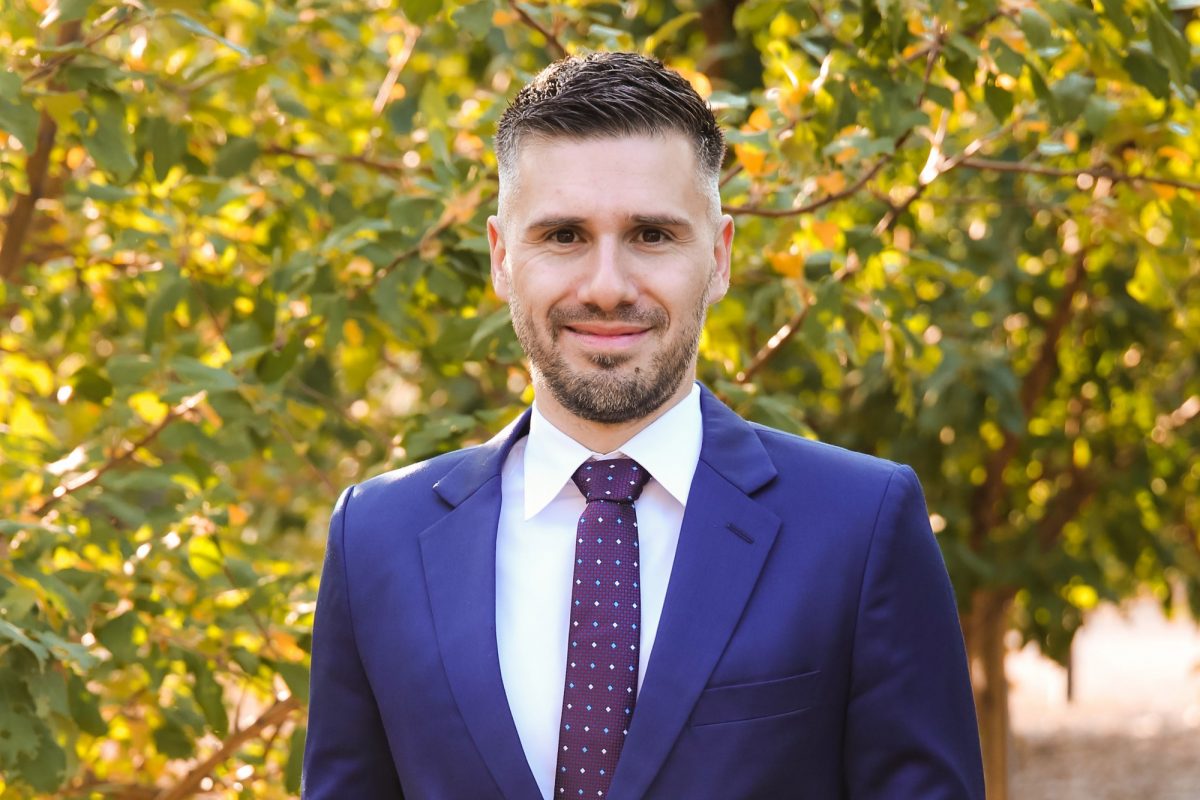
Raphael Clouatre
Meet Raphaël Clouâtre, 2021 Rh Award Winner in the Natural Sciences category
Raphaël Clouâtre is an associate professor in the mathematics department, whose research seeks to understand the structure of infinite matrices.
Clouâtre is the 2021 recipient of the Terry G. Falconer Memorial Rh Institute Foundation Emerging Researcher Award in the Natural Sciences category, in recognition of his theories underlying recent developments in operator algebras and operator theory. UM Today caught up with him to learn more about him and the research he is undertaking.
Tell us a bit about yourself and your research.
I grew up in Montreal and did my undergrad and masters there as well, then I went to Indiana for my PhD and Waterloo for postdoc in pure mathematics. My area of expertise is called operator algebras. Operators are infinite matrices used in the mathematical description of small-scale physics.
A familiar peculiarity of quantum mechanics is Heisenberg’s uncertainty principle. Simply put, this says that the order in which one makes measurements matters. Mathematicians recognized that operators could be used to model such phenomena, and that their structure was more efficiently studied by analyzing not just individual operators, but rather collections of such objects, along with their interactions. This is what an operator algebra is.
Why is this research important?
This is a fair question, and it is often difficult for a pure mathematician to give a satisfactory answer. I do fundamental research, so the relative importance of my research is not something that can be measured or felt in the short term.
I do not work in a lab trying to cure cancer or design airplanes. Nevertheless, my research does have some connections to more applied sciences. For instance, there is a big push right now in science to develop quantum computers, which would hopefully be able to do things normal computers can’t. The theoretical underpinnings of such computers borrow mathematical tools from my field of research.
What does the Rh Award mean to you?
When directly compared with other more applied scientists, pure mathematicians are less frequently recognized, partly because their contributions are theoretical and thus leave it to scientists in other fields to find applications for their tools and theories. I find it meaningful that this award is recognizing fundamental research, which is equally deserving of celebration and support as its more applied counterparts.
What do you hope to achieve in the future?
I’m inspired by recent spectacular developments in operator algebras related to the so-called classification program. In the future, I aim to adapt ideas from this program to more general objects that lack a standard symmetry property.
This would be accomplished using “Non-Commutative Function Theory”, which involves a mix of calculus and algebra. The resulting deeper understanding would be helpful in furthering theoretical advances in quantum information theory, for instance.
Any advice for early career researchers and students?
Do not overlook fundamental research in mathematics. It is an exciting and rewarding field, and we have many great researchers doing ground-breaking work at the U of M. There are lots of undergraduate opportunities for research in pure and applied mathematics. Go ask your favourite mathematics professor about their work and how you can get involved!
Research at the University of Manitoba is partially supported by funding from the Government of Canada Research Support Fund.






